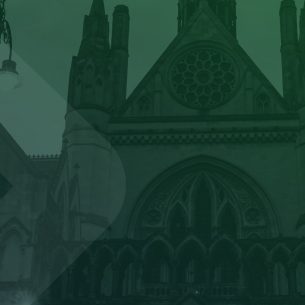Partner Brian Swan examines proposals by the Law Commission to stop rich suspected criminals of receiving legal aid, in The Law Society Gazette.
Brian’s article was published in The Law Society Gazette, 1 February 2021, and can be found here.
The idea that rich defendants should receive legal aid to fund their defence costs in criminal cases has long been a complete anathema to many lawyers, and to the general public.
In 2013, the then Lord Chief Justice told the Lords Constitution Committee: “We are talking about people with big money. One of the things that is completely daft is where somebody perceived to have big money is charged, there is almost always an application to the court to prevent him dissipating his assets. Very sensible, but one of the conditions which is always sought and granted includes the dissipation of assets by paying for his own legal advisers.”
He added: “There should be an order which says so much of these assets can be used for the purposes of your defence. That is the answer. That is not very difficult.”
Seven years on and the Law Commission finally pursued the idea – in part, thanks to a long-running campaign by the Evening Standard. Last September, it published a 744-page consultation document, Confiscation of the proceeds of crime after conviction, which proposes a comprehensive overhaul of the current system. As a measure of the scale of the challenge, the value of outstanding confiscation orders in 2019 was more than £2bn.
There are ‘significant problems with the regime’, according to the consultation, which adds ‘Consideration of reform was timely, if not overdue.’ The bottom line in terms of rich defendants, whose assets are frozen, is that some of this money should be used to pay their defence costs rather than them being funded by legal aid.
The Commission suggests that this change will ‘save the state from having to supply legal aid to defendants who have sufficient means to pay legal fees’ and ‘redress any public perception about the use of legal aid where it may seem to be unnecessary.’
The Commission also addresses the potential risk of ‘reckless dissipation of restrained assets in legal fees’ which have been frozen pending confiscation. It suggests that this risk can be prevented by judicial monitoring of the amount of money which is released in order to pay for suspects’ legal costs. The consultation concludes: ‘The submission and approval of a costs budget by the judge would protect against unreasonable dissipation.’
These proposals would seek to reverse the position which was implemented by the Proceeds of Crime Act 2002 (POCA) in respect of defendants funding their legal costs with their restrained funds.
Before POCA was enacted, under previous legislation – the Drug Trafficking Act 1994 and the Criminal Justice Act 1999 – a person who was made subject to a Restraint Order was permitted to fund his case from his restrained funds. The advent of POCA prohibited a defendant from funding his criminal case if he was made subject to a Restraint Order.
This prohibition was subject to significant criticism from the outset. As some would say, it was completely at odds with the presumption of innocence. Manifestly, there is a contradiction between the idea that you are innocent until proven guilty by a Court of Law, while at the same time, you cannot use your assets to contest the charges against you because the Court believes that you are guilty.
Accordingly, those assets need to be preserved so that they can be made subject to a confiscation order once you are convicted.
The fundamental change that arrived with POCA served to shift the emphasis on the purpose of the confiscation regime which was used, historically, to strip a defendant’s ill-gotten gains. In its place, the new focus centred on maximising the recovery of assets for the State.
When POCA was introduced, a defendant who had funded his case privately (whether he was made subject to a Restraint Order or not) could recover all or some of his costs in the event he was acquitted of all or some of the charges he faced. In the event that a defence costs order was made in favour of a successful defendant, his legal costs would then be reimbursed from the public purse.
This coincided with the long-established principle in all areas of the law that costs followed the event. This principle was significantly amended by Schedule 7 of the Legal Aid, Sentencing and Punishment of Offenders Act 2012 (LASPO), which completely prevented the recovery of legal costs by a successful defendant in the Crown Court.
This has since been amended slightly so that a defendant who was refused legal aid in the Crown Court could recover legal costs limited to legal aid rates under a defence costs order.
The Law Commission’s proposed changes would be very much welcomed by the profession. The changes acknowledge that it would create significant savings for the public purse in having to provide legal aid funding for cases where defendants have the means to pay their own costs.
It would also redress the conflict with the current position, namely the presumption of innocence, but would still ensure that the spirit of the confiscation regime is intact, which is to strip a convicted defendant of the proceeds of their crime.
The consultation closed in December. Lawyers now await the next stage in the process, policy development, before a report is finally published. It is to be hoped that its conclusions meet lawyers’ expectations and that what it recommends in terms of rectifying the shortcomings of POCA will be fully implemented through subsequent legislation.





